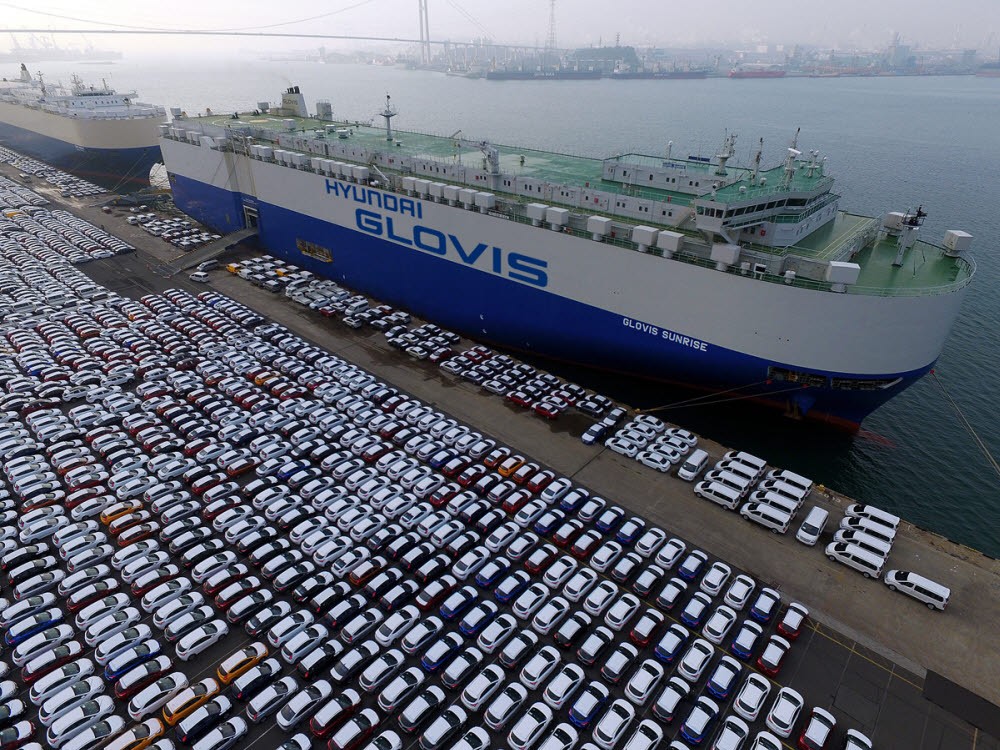Due to the prolonged shortage of automotive semiconductors and a decline in the utilization rate of finished car factories, the Big 4 domestic auto parts makers are expected to record business results that fall short of market expectations in the third quarter of this year. With fully manufactured cars it is easier to manipulate the market to keep the profits up, however, low utilization rate of parts makers is directly related to earnings.

According to Fn Guide on the 24th, the consensus on the business performance of four listed auto parts companies including Hyundai Mobis, Hyundai Wia, Hanon System, and Mando fell all at once compared to a month ago. This is because the financial investment industry lowered sales and operating profit per company to reflect the decline in production in the auto industry.
According to the consensus by company in the third quarter, Hyundai Mobis sales are expected to decrease 0.7% from the same period last year to KRW 9,920.1 billion, and operating profit will decrease by 9.0% which is KRW 543.9 billion. Compared to last month’s consensus, sales and operating profit fell 5.3% and 9.9%. Hyundai Wia’s consensus also declined. Sales increased 1.2% from the same period last year to KRW 1.862.7 trillion, and operating profit increased by 228.9% to KRW 43.4 billion, down 81.8 billion won in sales and 10.9 billion won in operating profit from a month ago.
Hanon Systems’ sales decreased 7.8% compared to last year which is now KRW 1.7528 trillion, and operating profit was KRW 87.8 billion, down 26.5% compared to last year. This month, sales and operating profit fell by 10.2% and 30.7%. Mando’s operating profit is expected to increase by 1.3% to KRW 66.5 billion, down 1.0% from the same period last year to KRW 1.486.3 trillion. Compared to a month ago, sales fell 4.4% and operating profit fell 15.1%.
The mitigated performance of parts makers may be due to production cuts by automakers as the number of business days were reduced caused by a shortage of semiconductor supply and the Chuseok holiday. According to the Korea Automobile Manufacturers Association, domestic automobile production fell to the lowest level in 13 years this third quarter. In this quarter, the total car production was 761,975 units, a decrease of 20.9% compared to the same period last year. This is the lowest level since 2008 (761,210 units), when production was significantly reduced due to the global financial crisis. Hyundai Motor, its largest customer, produced 35,209 units in the third quarter, down 15.8% from the same period last year. Kia also decreased by 6.5% to 321,734 units.
In particular, the downward revision of the consensus from a month ago is due to the prolonged shortage of semiconductors caused by the 2nd wave of COVID-19. Despite the supply and demand shortage of semiconductors this year, domestic automobile production was evaluated as 908,848 units in the first quarter and 906,699 units in the second quarter. However, the slump in production worsened again in the third quarter as the supply of parts was disrupted due to the re-spread of COVID-19 in Southeast Asia, where major semiconductor suppliers are located.
The financial investment industry predicted a relatively large base effect from the fourth quarter as the decline in 3Q earnings was a short-term effect.
Jun-ho Park, a researcher at Hanwha Investment & Securities said, “With the entry into the peak season for finished car production and the possibility of improving semiconductor supply and demand during the fourth quarter, we expect flexible earning improvement at auto parts makers.”
chiyeon@etnews.com Reporter Chiyeon Jeong chiyeon@etnews.com
